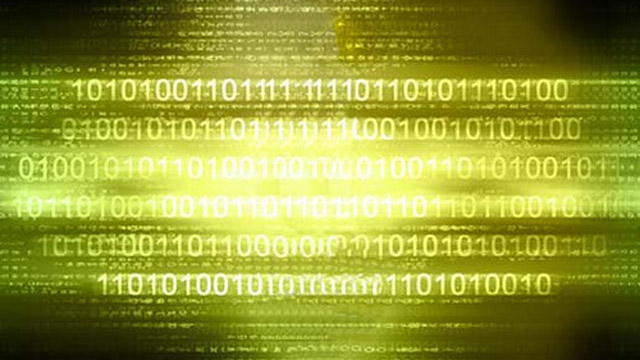Surprising Science
All Stories
Technology Review profiles the year’s top young innovators under 35—impressive inventions in the fields of computing, web, communications, biomedicine and business are on display.
It’s not all about talent, says Jonah Lehrer at the Frontal Cortex. Log 10,000 hours of practice, get started at an early age, diversify your interests and live in a small population center.
“Scientists have reacted with anger at a court ruling that strikes down Barack Obama’s decision to greatly expand medical research using stem cells taken from human embryos.”
How can government protect you from your own harmful desires like gambling and drinking? New ‘self-exclusion’ policies allow people to plan ahead for those moment of impulse.
Twenty inventions will compete for a prize of $30,000 at the design competition sponsored by British inventor James Dyson. A life raft that makes saltwater potable is in the running.
Amid questions over U.K. taxpayer money spent on sex services for the disabled, Naomi Jacobs rejects the “myth” that the disabled need to exploit prostitutes to have sex.
What do God, Dr. Frankenstein, and Lady Gaga have in common? They are all names that geneticist-cum-media-sensation Craig Venter has been called since announcing in May that he had created […]
We all think we know what it means to be conscious, but it is hard to pin this down in a precise, scientific way—as USC neuroscientist Antonio Damasio explains in our video. Every weekday in September, Big Think will offer a new insight into the human brain in our new “Going Mental” blog.
Using lasers to manipulate the weather sounds like science fiction, but researchers at the University of Geneva have done just that. In May, Dr. Jerome Kasparian unveiled the results of […]
Chef Wylie Dufresne believes in playing with his food—but not in the usual sense of the phrase. In his popular New York restaurant, wd-50, Dufresne applies molecular gastronomy, a field […]
If Americans were paid to eat less and exercise more they might be motivated to lose some weight—and save us a bundle on health care—says Dr. Barry M. Popkin, director […]
“How is it that we have we learned that when our phone buzzes with a message we MUST respond?” It’s time to question how our digital identities impact on our true selves.
This past week, a number of top experts stopped by the Big Think offices for a video interview. Among them were lawyer and Innocience Project co-founder Barry Scheck, child and […]
Entomologist and National Geographic writer/photographer Mark Moffett knows a lot about bugs. Having studied marauder ants under renowned insect biologist Edward O. Wilson at Harvard, and then gone on to […]
“A new kind of chlorophyll that catches sunlight from just beyond the red end of the visible light spectrum has been discovered.” The discovery could help advance bio-fuel research.
“New technology could allow people to dictate letters and search the internet simply by thinking, according to researchers at Intel who are behind a mind-reading computer project.”
Here is a puzzle: if promiscuity has increased over the past century and if the cause of that increase was really a fall in the risk of pregnancy, then why […]
A Japanese inventor has created a machine that turns ordinary plastic waste into oil. The oil can be used as an engine lubricant or further refined to make gasoline, diesel and kerosene.
Do psychological diseases have a shelf life? “The idea of Attention Deficit Hyperactivity Disorder (ADHD) as a credible diagnostic term has passed and it is time that we accept that and move on.”
“Everyone looks better after you’ve tipped back a pint or two, and now we may know why.” Discovery News says that our ability to detect facial symmetry—a metric of beauty—diminishes.
“Scientists suggest that some psychedelics are remarkably good at treating disorders like depression and may now have a clue as to why.” Studies on psychedelics may create new treatments.
“Scientists are increasingly worried about the amount of debris orbiting the Earth.” The Economist says the number of potential collisions among space satellites has doubled in the last decade.
Are our cities making us unhappy? The diversity of plant life surrounding us affects several quality of life metrics such as the ability to concentrate, relax and make major life decisions.
A new study of birds concludes that parents get more help when they are sexually faithful to each other and “leaves little doubt that promiscuity corrupts social life in birds.”
Facebook risks an inevitable privacy backlash with the launch of its feature sharing information on the location of users with their online friends, says Jemima Kiss.
In its editorial, Nature says WHO deserves praise for its (albeit imperfect) handling of the “potentially disastrous” H1N1 influenza pandemic threat.
Frank Thadeusz looks at whether the lack of copyright law — and resulting wider dissemination of scientific discoveries — laid the foundation for Germany’s industrial might.rn
Much of excellent teaching involves intangibles but if data can show that some teachers are far better than others, the public should know, argues Op-Ed editor Sue Horton.
“Software should always be free because all users of software deserve freedom,” says Richard Stallman, founder of the Free Software Foundation and the GNU Project, and a longtime activist. But […]
A new book that challenges the extent to which natural selection explains evolution has been attacked by biologists even though the book’s authors do not contest evolution itself.








